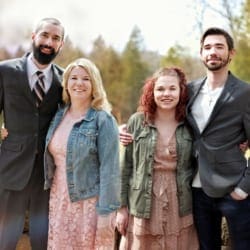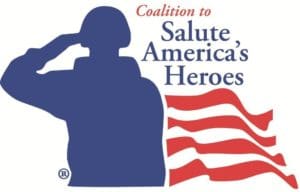My husband fought for our country and now I get the honor of empowering him so we can live the best life we can.
What are you most excited to do as a Dole Caregiver Fellow?
I am excited to seek out other caregivers and spouses that feel alone or isolated. I plan to share the wealth of information and resources that have been shared with me. I hope to be a source of encouragement for these caregivers’ families. One thing I am looking forward to is sharing Elizabeth Dole Foundation resources with the Caregiver Support Coordinators at my local VA. I plan to host meetings at my local VA to meet and support the caregivers there.
How has your life changed since you became a caregiver? What sacrifices have you had to make?
My entire world changed. Reaching out to others in the same situation has been encouraging. Instead of living in denial, I want to help and encourage as many people as I can.
What does being a military or veteran caregiver mean to you?
Being a veteran caregiver means I am patient and compassionate. My husband fought for our country and now I get the honor of empowering him so we can live the best life we can.

My Story
Megan Weatherford believes that the small farm where she, her husband Will, and their son live provides her the best form of self-care. Together, they raise goats, chickens, and pigs, and plant tomatoes, peppers, zucchini, squash, potatoes, and even the luffa gourds that are used to make loofah sponges. The peaceful setting has been a wonderful therapeutic place after many difficult years of marriage, brought on by Will’s untreated post traumatic stress disorder (PTSD).
Megan and Will married a few years before he was deployed to Iraq as a medic. Will became a great father to Megan’s daughter and the son they had together before his deployment. When Will returned, Megan expected everything to be just like it was before. Instead, Will struggled silently with the effects of PTSD. Megan noticed some changes, but thought he was just adjusting to being home and things would go back to normal soon.
However, instead of her husband getting the help he needed, he turned to alcohol and prescription medication abuse. Megan felt very alone and isolated with their two children. She did not know there was help for her, their children, and her husband. After Will and Megan suffered in silence for 10 years, Megan was ready to end the marriage, yet knew she couldn’t leave knowing how much help he needed and how broken he was. Determined to find help, she started researching veteran organizations, local psychiatrists in the VA system, and many other resources.
Their near-divorce was a turning point for both of them. Will has been sober since, and Megan has enrolled in the VA caregiver program, giving her a much-needed source of help and advice. As Will’s caregiver, Megan helps him manage his medication, prevents triggers, provides daily reminders about hygiene, and is his emotional support when anxiety strikes. She has adjusted to her new normal and in addition to her responsibilities at home, she plans to convert the house her father left her into a vacation rental property for veterans and their spouses looking for a quiet setting to be together.
Megan doesn’t want family members of veterans to go through the same painful learning process that she did because of PTSD; she believes family members need training so they know what to anticipate and expect. Had she had training resources or more education on the subject, Megan believes she could have prevented some of the suffering their entire family silently endured for so long.










